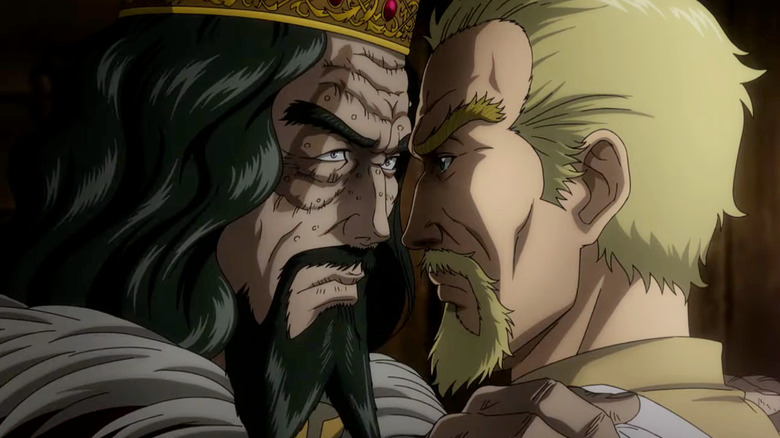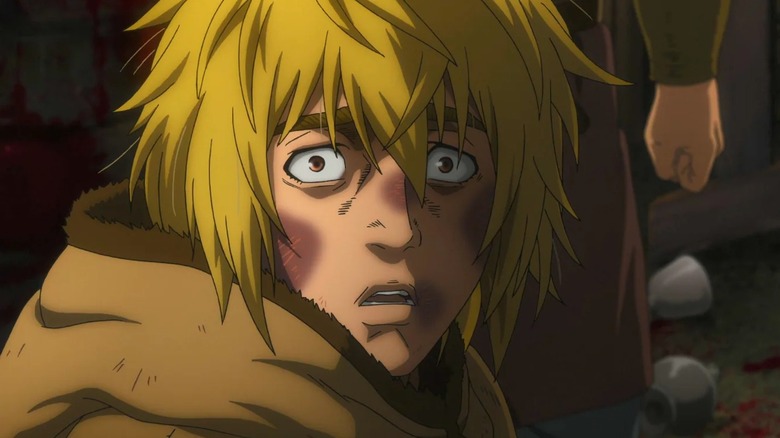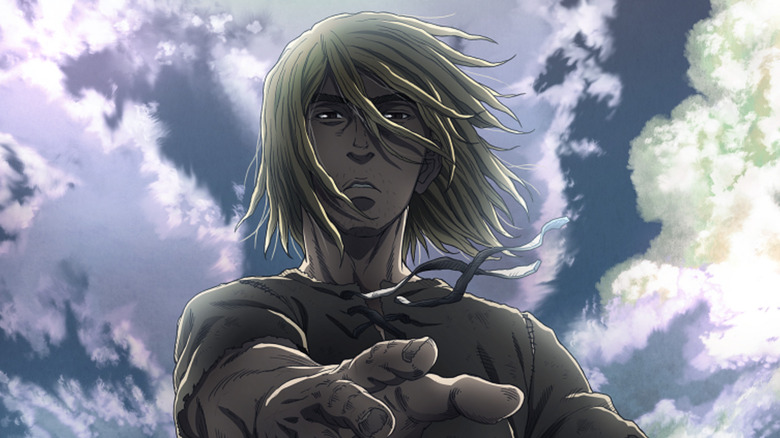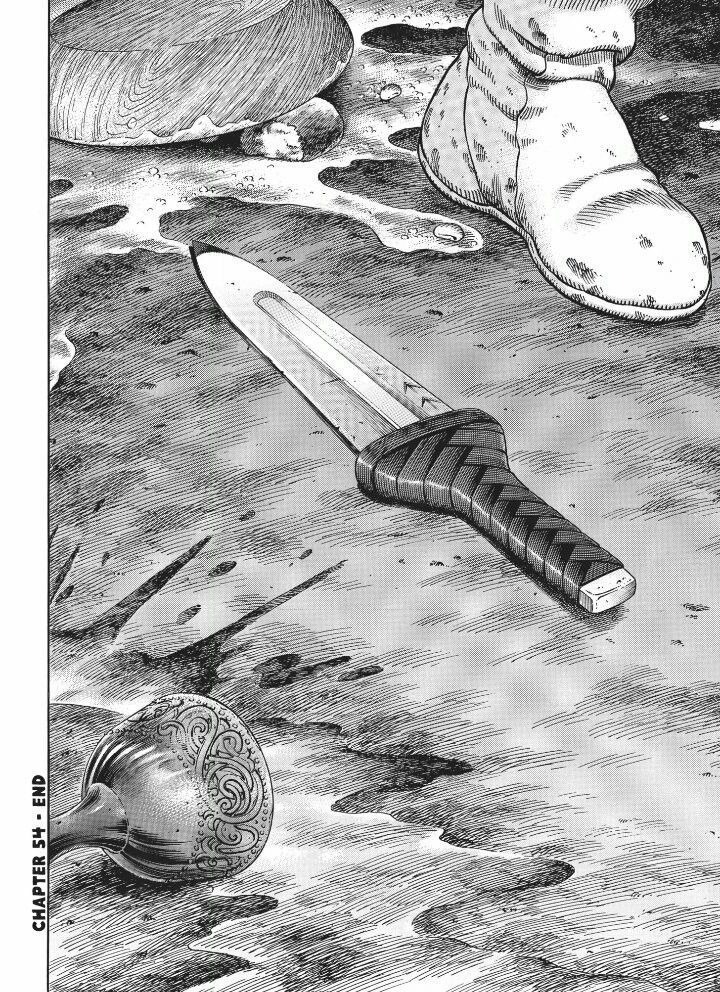The Best Anime Episode Ever, According To IMDB
Websites like the Internet Movie Database (IMDb) are innately fickle. IMDb scores of movies and TV shows rely on ratings from their user base, but not all opinions are created equal. Putting educated, thought-through ones being counted alongside simplistic and trolling ones elevates the legitimacy of the latter and degrades that of the former. To quote director Sidney Lumet ("12 Angry Men," "Network") — "You're not a critic just for your opinion. My elevator man has got an opinion."
Granted, there is something to be said for creating a gauge of broad public opinion — and IMDb's collection of the highest-rated TV episodes is largely aligned with it. Number one is "Ozymandias" from the final season of "Breaking Bad," which has maintained a perfect 10/10 score since it premiered in 2013. The runner-up is "Everyone's Waiting," the final episode of "Six Feet Under" — some (including /Film's Caroline Madden) maintain that it's the greatest series finale of all time.
In third place is "The View from Halfway Down," the penultimate episode of "BoJack Horseman." Then in fourth place is something less famous, but not because it deserves to be. "End of the Prologue," the season 1 finale of the anime "Vinland Saga," which is rated 9.9/10 (per the votes of 20 thousand IMDB users).
There are some other anime episodes throughout IMDB's top 100 episodes list. The runner-up is the widely-beloved "Code Geass" finale, "Re;" (which ranks in 22nd place at 9.8/10). "Attack on Titan" and "Hunter x Hunter" also show up throughout the list. "Vinland Saga" still reigns supreme, though, five years after "End of the Prologue" premiered in 2019. Is the episode really that good? Does it deserve to be neck-and-neck with "Ozymandias" and "Everyone's Waiting"?
I think it does — and that I can convince you of that better than an elevator man could.
Vinland Saga season 1 concludes the story of Thorfinn and Askeladd
"Vinland Saga" adapts the original manga of the same name by Makoto Yukimura. The story has an unusual setting for both a manga and an anime: Viking-era Europe. The main character is Thorfinn, an Icelandic boy who sees his pacifist father Thors murdered by pirates. The vengeful Thorfinn joins the pirates and dedicates himself to killing their leader, Askeladd.
Thorfinn thus becomes a coldhearted Viking, the kind that Thors never wanted his son to be. Ironically, Thorfinn is more of a son to the man he wants to kill. Yet, despite appearances, Askeladd (who is half-Welsh and the son of a former slave) has little love for the Vikings either.
The story's third lead is Prince Canute of Denmark, future king of the North Sea Empire who is destined to be known as "Canute the Great" in the annals of history. This Canute is a fragile and effeminate boy disdained by his Viking father, King Sweyn. Askeladd, though, sees Canute as clay ripe for molding into a worthy king.
"End of the Prologue" goes like this. Sweyn gives Askeladd a choice: kill Canute, or the Vikings will invade Wales. Askeladd instead decapitates Sweyn, and so Canute — understanding what Askeladd has done and silently thanking him — stabs him to cement his place on the throne. Thorfinn holds Askeladd as he dies, screaming at him not to go before Thorfinn can kill him himself. Askeladd tells Thorfinn that he'll have to move on now; instead of chasing after him, Thorfinn should strive to become a man who would make his father proud. It's a perfectly-acted scene no matter which dub you watch "Vinland Saga" in.
Askeladd's time in this saga comes full-circle. His first major act in the story was killing Thors; he hated having to do it, because he respected the man's idealism, but he still did it. Thors refused to either take a life or surrender his son's, so he gave his own. Askeladd steps into Thors' shoes, giving his life for something greater than himself and dying at the hands of a man who admires him. Both deaths leave Thorfinn fatherless.
The "Vinland Saga" anime makes some changes to the manga's pacing that improve flow and characterization. The manga opens with Thorfinn and Askeladd, but the anime is told chronologically. Episode 5, "The Troll's Son," shows the real beginning of Thorfinn and Askeladd's relationship. Thorfinn, not even old enough to swing a sword, demands Askeladd duel him, so the Viking makes a "promise between warriors" that they'll duel if Thorfinn can prove himself. It's an episode so filled with important moments it's hard to believe none of them are in the manga.
Does Vinland Saga get even better after season 1?
"End of the Prologue" absolutely is one of the best "Vinland Saga" episodes, but some peaks in season 2 reach just an inch or two higher. Those episodes rest on the foundation of season 1, though.
How can "Vinland Saga" season 1's intricate character dynamics and years-spanning story just be a "Prologue"? Because violence is only Thorfinn's first step as a character. After Askeladd dies, Thorfinn lunges at Canute. As punishment for striking a king, he's sold into slavery. Season 2 opens with the enslaved Thorfinn working on a plantation. Now a hollowed-out husk, he shows emotion only when asleep, because his years of killing left him with endless nightmares. "Vinland Saga" season 2 shifts into a slower show, as Thorfinn's goal becomes rebuilding himself instead of fighting for revenge.
Thorfinn's very last act in season 1 is dropping his dagger as he's pulled away from Askeladd's corpse. The last page of the corresponding manga chapter is the discarded dagger:
When Thorfinn loses that dagger, he also loses his purpose. In a recent interview with Anime Feminist's Toni Sun Prickett, Yukimura discussed how Thorfinn's change reflects the Buddhist idea of "kuu," or emptiness: to achieve enlightenment, one must detach from their self.
Part of what makes "Vinland Saga" so fascinating is seeing European history retold by a Japanese storyteller, with overlapping cultural ideas. ("Vinland Saga" is an inverted "Shogun" this way.) Thorfinn's change by emptying out his old self is a Buddhist ideal, but what he fills himself back up with are Christian ideas of forgiveness and loving thy fellow man. This brings him into conflict with Canute, who now rules the Vikings to protect themselves (and others) from their worst selves. Once a Christian, Canute turned his back on God for forsaking his children to a violent world. Instead, Canute's Earthly kingdom will be a paradise for men to find shelter in.
Askeladd's final moments created two men better than himself — and, indeed, one of the best TV episodes ever.



